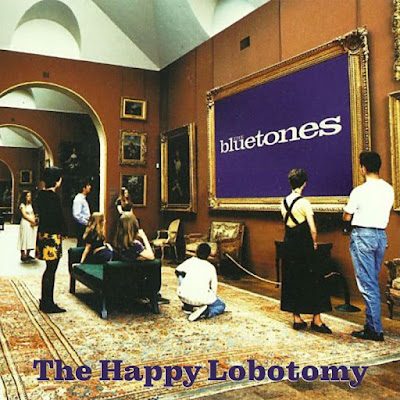Gordon Meredith Lightfoot Jr. was born on November 17, 1938 in Orillia, Ontario, and his musical talent was recognised by his mother at an early age, and she schooled him into a successful child performer. His first public performance was 'Too Ra Loo Ra Loo Ral' (an Irish lullaby) in grade four, which was broadcast over his school's public address system on a parents' day event, and as a youth he sang under the direction of choirmaster Ray Williams in the choir of Orillia's St. Paul's United Church, which he had credited with teaching him how to sing with emotion, and to have confidence in his voice. Lightfoot was a boy soprano, and at the age of twelve, after winning a competition for boys whose voices had not yet broken, he made his first appearance at Massey Hall in Toronto. He performed extensively throughout high school, and taught himself to play folk guitar, with a formative influence on his music at this time being 19th-century master American songwriter Stephen Foster. In 1958 he moved to California to study jazz composition and orchestration for two years at Hollywood's Westlake College of Music, which had many Canadian students, and to support himself while there he sang on demonstration records and wrote, arranged, and produced commercial jingles. He returned to Toronto in 1960, as he was missing home, and has lived in Canada ever since, although he has done much work in the United States. After his return to Canada, Lightfoot performed with The Singin’ Swingin' Eight, and with the Gino Silvi Singers, and he soon became known at Toronto folk music oriented coffee houses. In 1962 he released two singles, both recorded at RCA in Nashville and produced by Chet Atkins, that were local hits in Toronto and received some airplay elsewhere in Canada, with '(Remember Me) I'm the One' reaching No. 3 on CHUM radio in Toronto in July 1962.
In 1963 he traveled around Europe and the United Kingdom, and for one year he hosted BBC TV's Country and Western Show, returning to Canada in 1964, where he began to develop a reputation as a songwriter. Ian and Sylvia Tyson recorded 'Early Mornin' Rain' and 'For Lovin' Me', and a year later both songs were recorded by Peter, Paul and Mary, while other performers who recorded his songs included Elvis Presley, Chad & Jeremy, George Hamilton IV, The Clancy Brothers, Marty Robbins, Judy Collins, and The Kingston Trio. In 1965 Lightfoot signed a management contract with Albert Grossman, who also represented many prominent American folk performers, and after signing to United Artists he released his version of 'I'm Not Sayin'' as a single, and appearances at the Newport Folk Festival and on The Tonight Show Starring Johnny Carson increased his following and bolstered his reputation. His debut album 'Lightfoot!' was released in 1966, bringing him greater exposure as both a singer and a songwriter, and it featured many now-famous songs, including 'For Lovin' Me', 'Early Mornin' Rain', 'Steel Rail Blues', and 'Ribbon of Darkness'. He consistently placed singles in the Canadian top 40, including 'Go-Go Round', 'Spin, Spin', and 'The Way I Feel', but his biggest hit of the era was a rendition of Bob Dylan's 'Just Like Tom Thumb's Blues', which peaked at No. 3 on the Canadian charts in December 1965, and to kick off Canada's Centennial year, the CBC commissioned him to write the 'Canadian Railroad Trilogy' for a special broadcast on January 1, 1967. Between 1966 and 1969 Lightfoot recorded four more albums for United Artists, and established himself as one of the best singer/songwriters of his generation, but this album concentrates on his rise to that success, collecting all his early singles from 1962 to 1966, plus the 'Canadian Railroad Trilogy' EP from 1967. It also includes one previously unreleased song which eventually turned up on the 'Early Lightfoot' album in 1969, and the version of 'Spin, Spin' on here is the original 45 recording and not the later remake which appears on most compilations.
01 (Remember Me) I'm The One (single 1961)
02 Daisy-Doo (b-side of '(Remember Me) I'm The One')
03 Negotiations (single 1962)
04 It's Too Late, He Wins (b-side of 'Negotiations')
05 Adios Adios (single 1962)
06 Is My Baby Blue Tonight (b-side of 'Adios Adios')
07 Day Before Yesterday (single 1963)
08 Take Care Of Yourself (b-side of 'Day Before Yesterday')
09 I'm Not Sayin' (single 1965)
10 For Lovin' Me (b-side of 'I'm Not Sayin')
11 Just Like Tom Thumb's Blues (single 1965)
12 Ribbon Of Darkness (b-side of 'Just Like Tom's Thumbs Blues')
13 Early Morning Rain (single 1966)
14 Spin, Spin (single 1966)
15 Long Haired Woman (previously unreleased, only available on 'Early Lightfoot' 1969)
16 Movin' (from the 'CN Freight Film' EP with Jean-Pierre Ferland 1967)
17 Talkin' Freight (from the 'CN Freight Film' EP with Jean-Pierre Ferland 1967)












